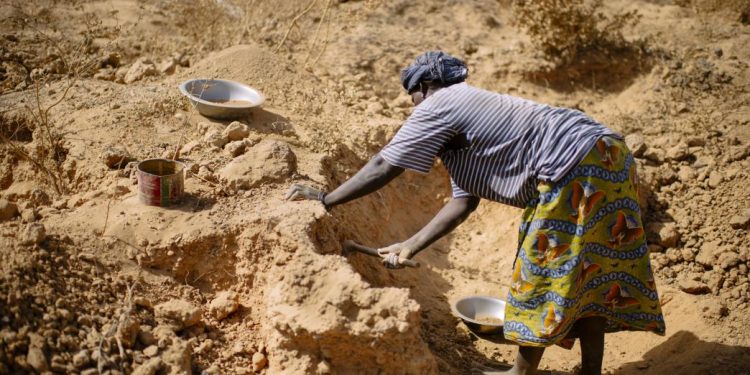Women in extractive communities across Nigeria are subjected to different health hazards within their communities, they suffer displacement as a result of environmental degradation, as well as loss of livelihoods. In some cases, they experience sexual and gender-based violence within these extractive communities.
Despite these numerous challenges, the media has not shed adequate spotlight on the issues to drive change and make a meaningful impact in the lives of these women.
To address this issue and spur journalists to increase its reportage of issues regarding women in extractive communities, the Renevelyn Development Initiative (RDI) held a one-day training for female journalists across Nigeria.
In her welcome remarks, Ifeoluwa Komolafe, the Project Officer, RDI shared that despite the low representation of women in the extractive sector, women face myriads of difficulties due to the fallouts of oil extraction and refining, gas processing, quarrying, drilling, and spills among others.
Quoting a 2009 publication by the World Bank titled “Gender Dimensions of the Extractive Industries,” Komolafe explained that men and women are impacted differently by the hazards of the extractive industry.
She said “chemicals released through the extractive industry impact women differently than men and the effects are also manifest in women’s reproductive system. But beyond these, women in the mining communities are affected differently when agricultural lands are used for mining activities or land pollution resulting from the extractive industry activities occurs.
“From environmental and health hazards to loss of livelihoods caused by loss of productive land, women, like their male counterparts, are at risk where extractive activities are concerned. Sexual assault, life-threatening sicknesses and diseases from the ingestion of extractive chemicals, injuries and deaths from gas flares, and loss of livelihoods are some of the numerous negative impacts of the extractive industry that deserve attention, especially as they relate to women.”
Corroborating her, Vanessa Adie shared that women in extractive communities, especially the artisanal miners encounter diverse issues ranging from sexual exploitation, physical violence and in some cases death.
Adie mentioned that oftentimes, media reports about women in artisanal mining do not look at issues beyond environmental degradation, high and low mining seasons, support/empowerment for women going into the industry and women defying the gender norms and daring into male-dominated territories.
She said it is important for journalists to spotlight the missing issues such as access to land and licenses, financial freedom and control over their earnings, health hazards, and shrinking social networks.
The Media Strategist also pointed out the need to interrogate laws that are favourable to women to address the numerous challenges experienced by female artisanal miners.
In her presentation titled ‘The Oil Curse and the Plight of Women in the Niger Delta’, Abasiama Cyril from Policy Alert shared that women in Niger Delta communities experience loss of livelihoods due to environmental degradation; death and reduction in lifespan; economic marginalization, land rights and displacement, and increased gender-based violence.
She called on journalists to “uncover the hidden realities of women’s experiences in the Niger Delta, bringing to light the plights, especially from the human angle,” stressing that “journalists have the role of projecting issues of underdevelopment, pollution, community needs and action.”
Laura Furones, Senior Advisor, Land and Environmental Defenders at Global Witness in her presentation on the latest report by Global Witness shared how mining and extractive industry drivers are responsible for 25 deaths of environmental defenders in 2023.
She highlighted the role of journalists in reporting issues of attack against environmental defenders which could help to nip the attacks in the bud.
Other facilitators at the training were: Ebere Ekeokpara, Journalist and Environmental Campaigner; and Hauwa Mustafa, Tubali Development Initiative. Philip Jakpor, the Executive Director of RDI, also participated.

